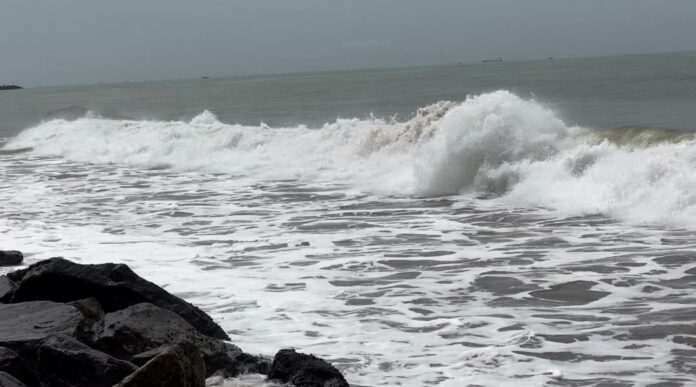Fishermen at Sekondi in the Western Region are raising concerns about what they describe as the silence of the Fisheries Ministry on the 2024 closed season.
The fishermen who have been interacting with 3news say there was intensive education around this time last year. The closed season also known as the biological rest period, or no harvesting period is when fishing activities are put on pause during the spawning or reproduction period of fish.

Closed seasons are observed as a way of reducing fishing pressure on stocks when they are most productive in terms of allowing the fish a chance to lay their eggs to replace the lost population due to fishing and other natural causes.

The Ministry of Fisheries and Aquaculture, in accordance with Section 84 of the Fisheries Act, 2002 (Act 625) declared a closed season for artisanal and inshore fleets from July 1 to July 31, while that of industrial trawlers spans from August 1 to August 31.
Implementation began with the trawlers in 2016. The rest were added in 2019. Following this, intensive awareness is created before the scheduled dates to prepare all the stakeholders, especially the fisherfolk.

This year however, fisherfolk at Sekondi say they are bemused at the silence of the Ministry. According to them, they now welcome the season, contrary to their earlier resistance as it enables them to focus on other areas of their work.

“We are uncertain whether it will come off this year because we are not seeing or hearing anything. At this time last year, there were posters around and announcements everywhere but this year, everyone is quiet,” said one of the fishermen.

“The closed season is good for all of us but what we are expecting by now is the publicity, so that we can also prepare ourselves for it. But we are not hearing anything. If they don’t close the sea, this year, we will close it ourselves”, says Paa Solomon, a canoe owner.

“We know that the closed season has come to stay. Personally, if they don’t close it this year, I will be very much pained”, said another.
Meanwhile, the Western Regional Chairman of the Canoe and Fishing Gear Owners Association of Ghana, Ebenezer Yorke has called for what he calls “an intensified safety at sea” education so that fishers will be safe.

His call is in reaction to a recent announcement by the Ghana Meteorological Agency cautioning especially fishers that the climate change has resulted in high sea levels and tides and as such dangerous for fishing activities.
Mr. Yorke opines that the caution should go beyond announcements to educating them about the implications so they can work safely.
Proceedings of the Japan Academy, Ser. B, Physical and Biological Sciences authored by Kiyoshi Horikawa states that; “sea-level rise is one of the most significant effects of climate change. High projected rates of future sea-level rise have captured the attention of the world. Particularly, countries which are located in low-lying areas as well as small islands are concerned that their land areas would be decreased due to inundation and coastal erosion and, at worst, a large proportion of their population may be forced to migrate to other countries.”
Therefore, this issue has resulted in heightened attention internationally, as the effects of climate change become apparent.” The question now is, how is Ghana preparing for this?
By Ewurama Smith













